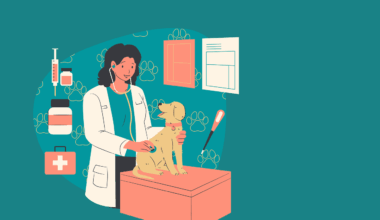Future Directions in Eco-Conscious Dog Parasite Control Solutions
Effective dog parasite control is essential for both canine health and environmental sustainability. Traditional methods often involve chemical treatments that may harm ecosystems and non-target species. Therefore, many pet owners and professionals are moving toward eco-friendly alternatives. These solutions are vital for reducing chemical residues in the environment while ensuring the safety of pets. Options such as natural herbal treatments and biological control agents are gaining momentum. Furthermore, educating pet owners about regular grooming, hygiene, and monitoring for signs of parasites can greatly reduce infestations. Initiatives promoting integrated pest management practices are evolving to include environmentally conscious approaches. Collaborating with veterinarians and holistic pet care specialists can enhance the selection of safe products while addressing various parasite types. In urban settings, discussing park cleanliness and shared spaces is essential for minimizing dog parasite transmission. Ultimately, adapting our control strategies to include the ecological impact of our choices will foster healthier pets and environments. The balance between efficiency and eco-friendliness is critical in determining the future of canine parasite control. Implementing sustainable practices today ensures a cleaner, safer world for dogs and their owners.
As we explore eco-conscious dog parasite control solutions further, the role of community engagement emerges prominently. Community-based programs promoting awareness about risks associated with parasites can foster collective responsibilities toward prevention and control. Neighborhoods can establish shared resources such as grooming stations and deworming clinics, thereby alleviating costs and increasing access. Another tactic is to implement educational campaigns across various platforms, emphasizing the importance of parasite prevention. Events that bring together experts to inform pet owners about effective practices can enhance community involvement. Utilizing social media to share success stories and tips empowers people and inspires proactive measures against parasites. Additionally, collaboration among local stakeholders, including shelters and pet clinics, can improve outreach and resource distribution. Research into the behavioral aspects of dog owners also plays a pivotal role in addressing misconceptions that hinder proper parasite control methods. Social influence often drives behavior change, making it essential for communities to work together in achieving common goals. Access to information directly influences how pet owners implement parasite control techniques in their daily routines. Thus, community engagement stands as a cornerstone in effective and sustainable dog parasite control.
Innovative Technologies for Sustainable Control
Technological advancements are revolutionizing dog parasite control strategies, particularly in eco-conscious practices. Smart collars and health-monitoring apps are examples of innovations that track pets’ health and detect early signs of infestations. These technologies provide pet owners with real-time data, allowing them to take preventive action efficiently. Moreover, the integration of artificial intelligence for predicting parasite outbreaks can considerably reduce reliance on reactive treatments. Soil and water testing kits are gaining traction for assessing local environmental risks relating to parasites and their hosts. By analyzing these factors, pet owners can customize parasite prevention strategies suited to their locales. In addition, advances in organic pesticide development have paved the way for safer alternatives that blend effectiveness with environmental responsibility. These products utilize natural ingredients to inhibit parasite growth without the harmful side effects of synthetic chemicals. As these technologies become more available and affordable, they promise to reshape the landscape of pet care. Ultimately, combining technology with a strong commitment to sustainability is crucial for fostering responsible pet ownership going forward. Embracing innovation will dictate the next steps in the evolution of parasite control solutions.
In addition to individual efforts and technological advancements, scientific research continues to play a vital role in developing eco-conscious dog parasite control solutions. Modern research focuses on understanding the life cycles of parasites, thereby identifying natural predators and feasible control methods. Collaborations among researchers, veterinarians, and environmentalists generate crucial data on the effectiveness of alternative treatments. For instance, studies evaluating the ecological impact of various natural remedies reveal valuable insights into sustainable practices that protect both pets and ecosystems. Moreover, research initiatives centered on native flora that repel pests can significantly contribute to the arsenal of eco-friendly options available to pet owners. These discoveries can lead to the development of cost-effective, region-specific treatments that benefit both dogs and the ecosystem. The application of sustainable practices in clinical trials shows promising results, translating scientific knowledge into practical solutions. As scientists investigate genetic variations among parasites, they can design targeted treatments, minimizing environmental risks. Investing in research represents a crucial aspect of advancing our understanding of canine parasite control. When combined with technology and community engagement, it holds the potential to revolutionize how we approach animal care and environmental health.
Behavioral Adjustments for Effective Prevention
Behavioral changes among pet owners are critical in achieving efficient parasite control. Adopting a proactive mindset towards preventing infestations begins with understanding how parasites spread. Educating dog owners about the necessity of regular vet check-ups, vaccinations, and preventive treatments creates a strong foundation for parasite control practices. Furthermore, establishing routine practices such as thorough grooming and outdoor hygiene can greatly minimize exposure risk to both pets and humans. For example, regular bathing and brushing of fur can aid in identifying early signs of infestation. Additionally, pet owners should assess their yards and living spaces for potential pest breeding grounds. Implementing simple landscaping tips, like removing standing water and regularly cleaning debris, can mitigate risks. Social accountability among dog owners is another effective route to increase awareness and compliance. When neighbors collaborate in maintaining clean dog parks or communal areas, everyone benefits from healthier environments. Developing partnerships with local businesses to provide discounts on preventive treatments could encourage proactive measures among pet owners. Establishing strong habits and cultivating a community-driven approach will be essential in ensuring longer-term success regarding eco-conscious dog parasite control.
Furthermore, addressing the environmental impact of pet ownership is crucial in the broader discussion of dog parasite control. The choices pet owners make—ranging from food selection to waste management—affect the surrounding ecosystem. Buying eco-friendly dog food can contribute to a more sustainable waste footprint. Opting for biodegradable waste bags can minimize plastic pollution and reduce landfill contributions. Additionally, proper disposal of dog waste is essential in controlling parasite transmission in public spaces. Responsible management of waste lessens the spread of parasites while protecting local waterways from contamination. Education on the effects of pet waste on soil health is vital for instilling responsible behaviors among pet owners. Furthermore, selecting less harmful or non-toxic yard treatments reduces potential toxicity to pets and other wildlife species. Engaging pet owners in discussions about humane wildlife management practices enhances the collective impact of environmental stewardship. Overall, positioning responsible pet ownership as part of a larger ecological framework is crucial. The goal is to balance the care of pets with respect for the natural world, thereby achieving both pet health and environmental sustainability in harmony.
Conclusion: Toward a Sustainable Future
As we envision the future of canine parasite control, it is clear that a multi-faceted approach is essential in minimizing environmental impacts. By embracing eco-conscious methods, we can enhance the overall health of our pets and the ecosystems in which they live. Educating pet owners about sustainable practices and engaging with innovative technologies will create a holistic framework for effective parasite control. Furthermore, partnerships among communities, researchers, and pet care professionals will be vital components in fostering sustainable practices. Emphasizing behavioral changes, along with the application of scientific and technological advancements, will equip pet owners with the tools they need for responsible parasite management. By focusing on integrating ecological considerations in daily pet care routines, we can collectively work toward solutions that benefit all stakeholders. Ultimately, prioritizing an eco-conscious approach toward dog parasite control will ensure a healthier future for our pets, ourselves, and our environment. As more pet owners recognize the significance of sustainability, the paradigm shift towards responsible pet ownership will positively impact society at large. Together, we can build a future where the health of our dogs and our planet are interconnected.


